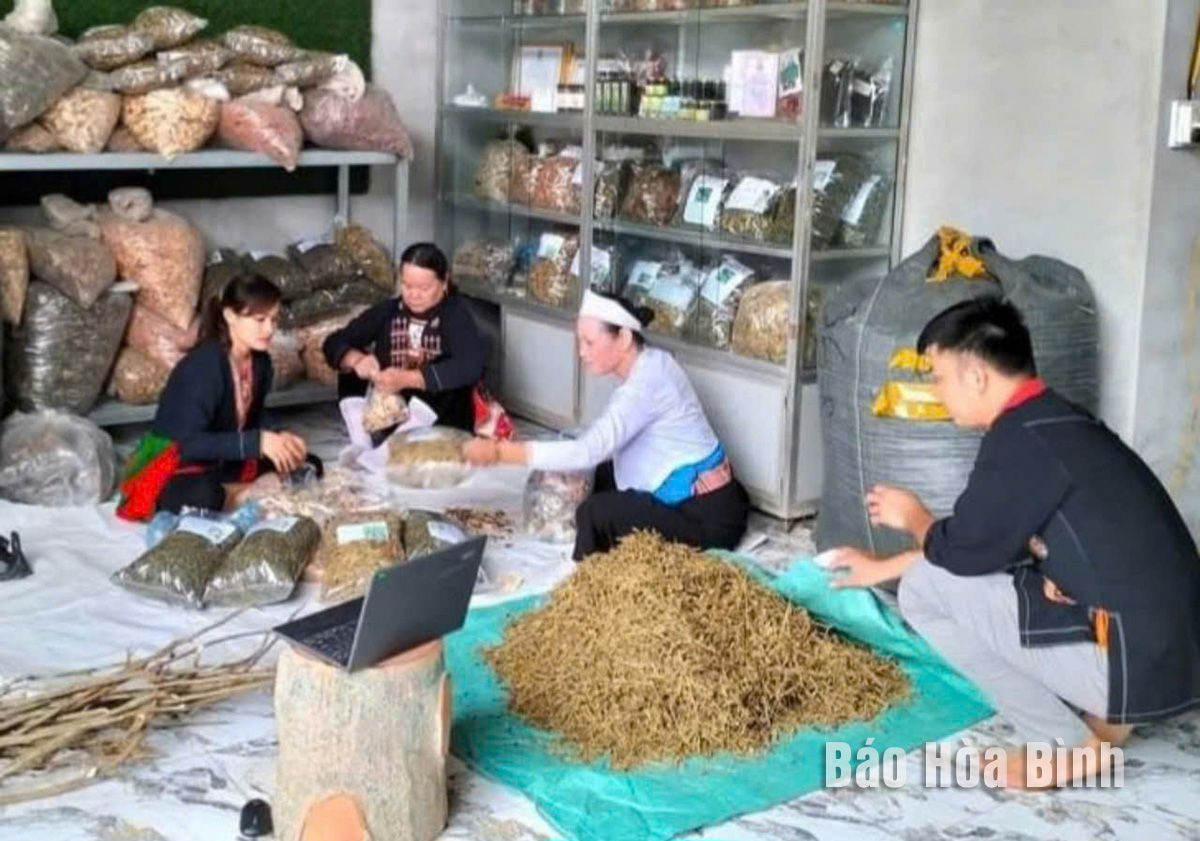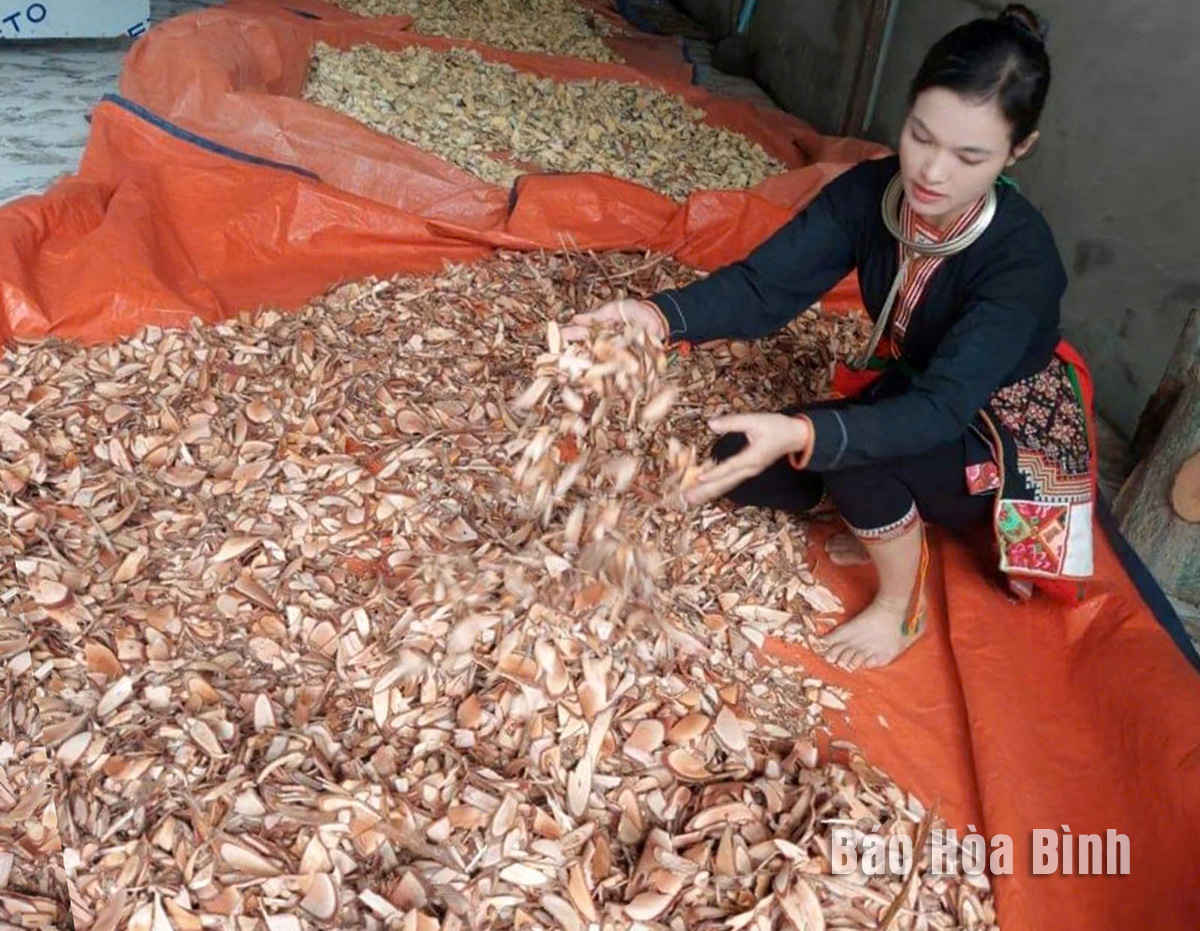



Products being packed at the Dao Herbal Medicine Cooperative in Thong Nhat ward.

The cooperative currently provides stable employment for its members, offering monthly incomes ranging from 5 to 7 million VND (203.5-285 USD) per person.
Dong Chua village, now the ward’s Neighborhood 9, is rich in rare and indigenous medicinal plants. The local Dao people have long mastered the use of these herbs, creating traditional remedies.
In the past, herbal remedies were often used in their raw form, making transportation difficult. In recent years, the community has begun producing concentrated herbal extract paste, such as Khoi Nhung and An Xoa products, which are used to cure digestive and liver diseases. This has improved the preservation and transport of these medicines, while retaining their efficacy.
Currently, 190 out of the 200 households in Neighborhood 9 are from the Dao community. A total of 100 local families rely on traditional medicine production as their primary income. However, most of them still operate on a small scale, harvesting wild herbs, which has led to the depletion of natural resources. Moreover, the traditional remedies are often passed down orally, limiting their wider recognition.
To address these challenges and enhance the economic value of medicinal plants, the Dao Herbal Medicine Cooperative was established in November 2020, initially with 15 members.
After nearly four years, it has attracted more Dao women, who are not only involved in production but also confident in entrepreneurship. A notable figure is Trieu Thi Hoa, a pioneer who studied at the Tue Tinh Medical and Pharmaceutical College Hanoi. Hoa, now the cooperative’s director, has inspired many women of the ethnic group to pursue herbal medicine as a career.
Hoa shared that since its inception, the cooperative has provided over 1,000 medicinal plant seedlings to each member and invested in a 300m² production facility equipped with modern machinery. Its products, including Khoi Nhung and An Xoa extract paste, have been trademarked and distributed nationwide, generating annual revenues of several hundred million VND. The cooperative currently provides stable employment for its members, offering monthly incomes ranging from 5 to 7 million VND (203.5-285 USD) per person.
With the support of various women’s unions, it has accessed funding and participated in entrepreneurship competitions. In 2024, Hoa's project on building a value chain for Khoi Nhung products aligning with forest protection reached the finals of the northern region's innovative and green entrepreneurship competition for women. Her project aims to expand the raw herbal material areas and increase local incomes while protecting forest resources.
Nguyen Thi Thanh Huyen, Chairwoman of the Thong Nhat Women’s Union, highlighted that the union will work closely with local authorities and other organisations to help the cooperative expand its herb processing activities. This will contribute to improving income and the overall living standards of the Dao community.